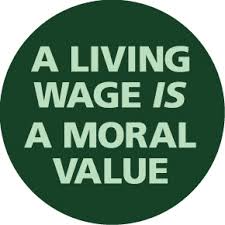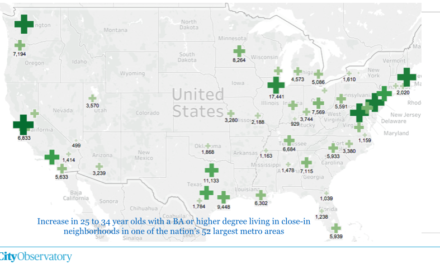There is a mythology built around the belief that $15 an hour is a living wage.
More accurately, it is a subsistence wage.
In truth, $15 an hour is only a living wage for an adult with no children or two adults with no children or one child. For all others, it comes up short.
The federal minimum wage of $7.25 an hour has been stagnant for 13 years and today, it not only does not come close to providing enough for workers to support their families but it fails to reflect the true value of workers.
That said, $15 an hour also doesn’t allow the vast majority of workers to provide for basic necessities for their families. In other words, the call for $15 an hour as the federal minimum wage is well-intentioned, but it too is inadequate.
When it comes to the minimum wage, Memphis has historically been hit hard. More than half of hourly workers nationally are women; more than half live in the South; more than 70 percent work in the service industry, such as restaurants, grocery stores, hotels, and food service; and more than 60 percent work in the leisure and hospitality industry.
This profile is also the profile of Memphis and Shelby County, reflecting the realities of our local economy and how low wages have exacerbated the living conditions of more than 120,000 people in Shelby County.
Undervaluing Workers
Today, with many employers having difficulty finding enough employees to work for those low wages, they are being forced to increase their hourly wages. Many have grudgingly raised the hourly rate to $15. That is a start.
Many large employers have fought an increase in minimum wage all while they are recording record increases in profits measured in the billions of dollars.
Some economists say that if minimum wage had increased with increases in worker productivity, minimum wage would today be about $26 an hour, which would mean that poverty in the U.S. would almost cease to exist. That in turn would reduce public costs for health care, child care, and the toll of stress and toxic shock, and it would increase personal freedom.
It’s worth mentioning that when Memphis and Shelby County Governments in 2009 sought to pay their workers $10 an hour with benefits or $12 without benefits and require their vendors and companies receiving tax breaks to do the same, the Tennessee Legislature swooped in, passing a law blocking local governments from making a decision on the issue. It was a disagraceful chapter for a legislature that has a history of them.
Here is what the living wage should be for workers in Shelby County if they are to support the expenses for their families. The living wage is based on the cost of food, child care, health care, housing, transportation, and other expenses.
Living Wages in Shelby County:
Here are what the living wages should be in Shelby County:
One Adult, working fulltime:
$15.37 – One adult with no children
$28.66 – One adult with one child
$35.57 – One adult with two children
$46.88 – One adult with three children
Two Adult, one working fulltime:
$23.95 – Two adults with no children
$28.11 – Two adults with one child
$33.22 – Two adults with two children
$36.41 – Two adults with three children
Two Adults, both working fulltime:
$11.96 – Two adults with no children
$15.96 – Two adults with one child
$20.40 – Two adults with two children
$23.89 – Two adults with three children
***
Required Annual Income Before Taxes:
One adult, working fulltime:
$31,963 – One adult with no children
$59,619 – One adult with one child
$73,979 – One adult with two children
$97,512 – One adult with three children
Two adults, one working fulltime:
$49,760 – No children
$58,476 – One Child
$69,098 – Two children
$75,741 – Three children
Two adults, both working fulltime:
$49,760 – No children
$66,360 – One child
$84, 866 – Two children
$99,392 – Three children
***
Source: MIT Living Wage Calculator






Nicely done. The living wage concept has always been a wage to support a household. The idea is that market ought to be somewhere within a reasonable range of the household needs. The idea behind the minimum wage is that it signals to the labor market what should be a basic living wage for an average household. Most slightly progressive States have passed new minimum wage laws that attempt to do that. Not Tennessee — so we are struck with the ancient federal minimum wage of $7.25 per hour.